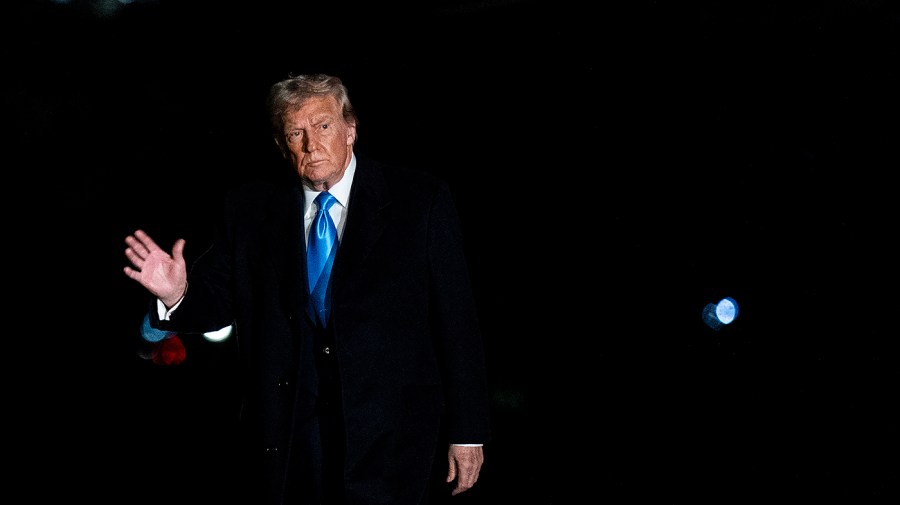
Consumers’ attitude toward the economy dipped during President Trump’s first month in office, according to the University of Michigan’s monthly consumer survey, released Friday.
Consumer sentiment fell nearly 10 percent, dropping from 71.7 in January to 64.7 in February. The dip appears to be largely driven by consumer concerns that tariff hikes could spur inflation, according to Joanne Hsu, director of the monthly survey.
Expectations for inflation in the next year jumped from 3.3 percent to 4.3 percent, while long-run inflation expectations rose from 3.2 percent to 3.5 percent.
“What we’re seeing is a very broad-based conclusion or opinion among consumers that inflation is going to pick up in the year ahead as well as the next five years,” Hsu told Yahoo Finance. “It was a pretty large month-over-month increase for both short and long run expectations.”
“It’s not necessarily cause for panic at this moment, but these expectations are clearly being driven over concerns over policy, concerns that tariffs are going to lead to price hikes,” she continued.
Trump has announced a bevy of new tariffs in recent weeks despite warnings from economists that raising fees on imports will likely lead to higher prices for Americans.
The president signed off on 25 percent tariffs on Mexico and Canada in early February. However, they were ultimately delayed one month after both countries announced steps to stem the flow of drugs at their respective borders.
Trump also levied a 10 percent tariff on Chinese imports and raised aluminum tariffs to 25 percent, while reinstating “the full power” of steel tariffs he increased during his first term in office.
He signed off on a presidential memorandum last week proposing reciprocal tariffs to match those levied by other countries on U.S. products, while signaling plans this week to announce additional tariffs on cars, semiconductors and pharmaceuticals in April.
Consumer fears about the potential impact of tariffs come after inflation ticked up last month. The consumer price index rose 3 percent year-over-year in January, up from 2.9 percent in December. It marked the fourth consecutive month that inflation has risen.
A separate poll released by Gallup on Friday found that Americans’ confidence in the economy remained solidly negative in February.
After ticking up slightly in the final months of 2024, Americans’ confidence dipped to –19 on Gallup’s economic confidence index in January, where it remained in February.
The biggest shift appears to be occurring between the political parties, as Democrats and Republicans have essentially traded places in their respective outlooks on the economy.
In October, Democrats had a positive economic outlook score of 38, while Republicans had a negative outlook score of –81. Now, Democrats sit at –87, while their Republican counterparts sit at 55.
The University of Michigan consumer survey also showed a split along partisan lines, with consumer sentiment falling for both Democrats and Independents, but not Republicans.
A similar split emerged in inflation expectations, rising for Democrats and Independents but falling slightly for Republicans.












